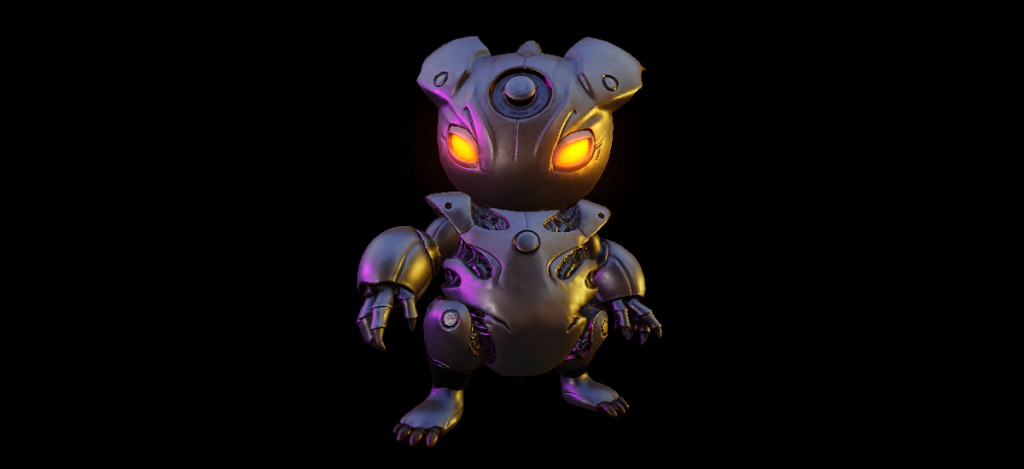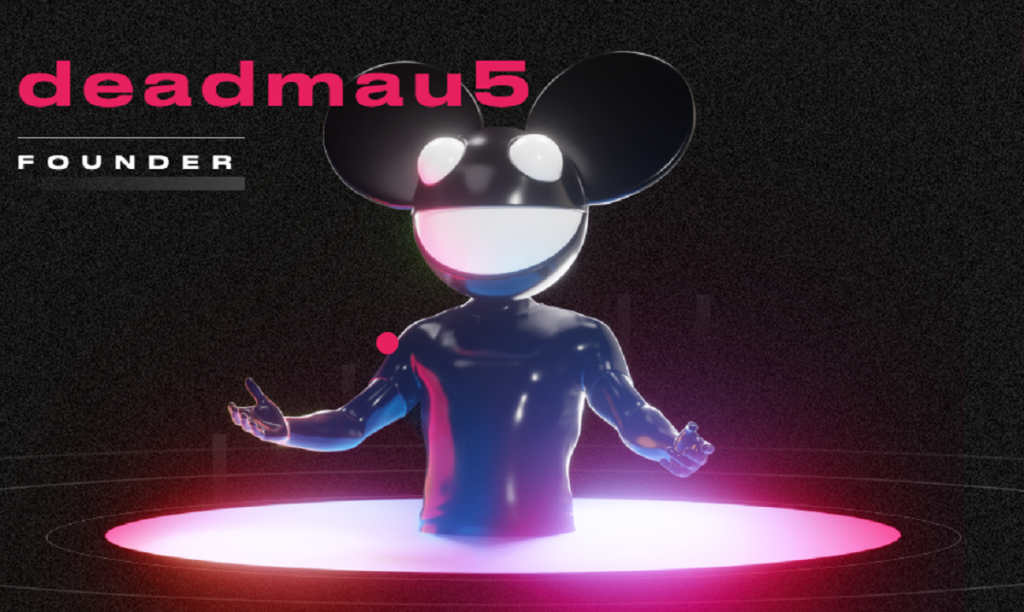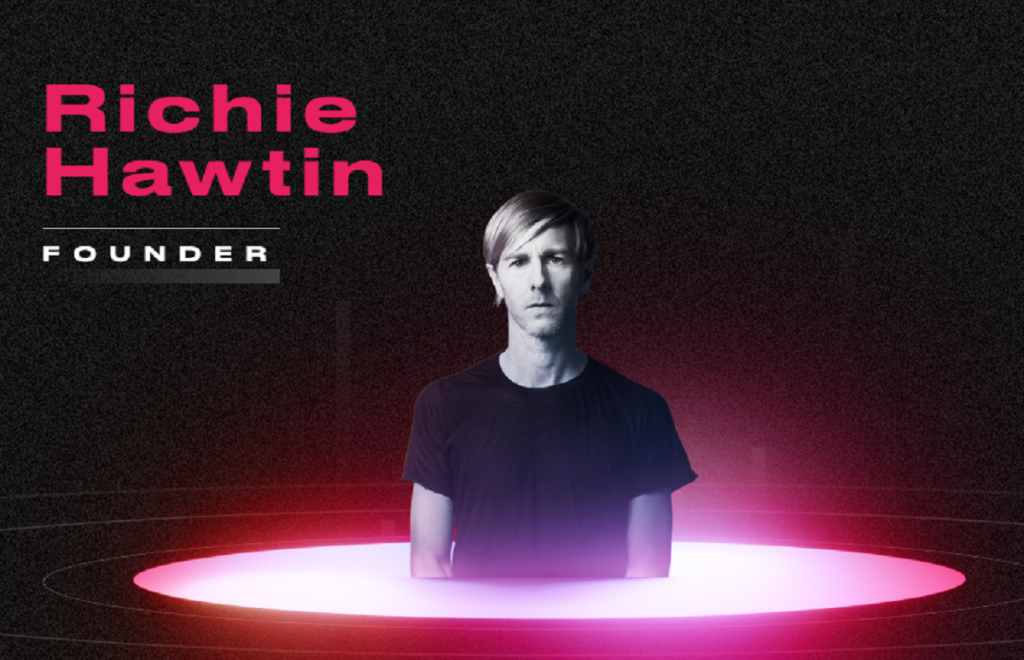Music and gaming company Pixelynx is creating a new music experience that’ll allow users to develop their own remix content, generate new revenue streams and connect with their favourite artists and fan communities.
After recently launching the public demo version of its AI companions called Korus, Pixelynx is opening up new avenues for players to collectively create unique content in its music metaverse platform by collecting music NFTs and inputting the underlying IP into these AI companions.
The company is focused on building a music ecosystem that will transform the way artists connect and engage with their fans through interactive experiences, particularly at a time when music artists are already utilising AI.
We spoke to Inder Phull, CEO and co-founder of Pixelynx, who discussed the company’s use of AI companions, how the platform can be utilised in the nascent metaverse space, as well as the impact of AI on the music industry.
For audiences who haven’t heard of Pixelynx, can you describe the company to us?
Inder Phull: Pixelynx is a music gaming company that was founded by deadmau5 and Richie Hawtin, as well as myself, and recently acquired by Animoca brands. What we’re doing is building new products that are really at the intersection of music and gaming, using technologies like Web3, AI and more to unlock new forms of innovation.
What we really care about and believe in is that music is going to become more interactive and immersive. And the products that we’re developing are trying to make music more immersive, more interactive and then giving artists a new medium to release their music and earn revenues from these new ways of experiencing music.
In the context of Pixelynx being acquired by Animoca Brands, what has the partnership been like?
It’s amazing. Animoca Brands was the first investor in Pixelynx when we were still in our early stages of growing as a company. Animoca Brands put $2 million into the company as the first investor and to follow that journey through where we raised capital from some other great investors like Niantic, who have also been amazing partners, and all of our investors are incredible.
But as we were going into our next phase of growth, we discussed the idea of being acquired by Animoca and it just makes so much sense. Not only were they the first supporters of us to invest in our vision, but they also really taught us a lot about where we think the future of entertainment is going, the idea of digital property rights and ownership and new ways for ecosystems to emerge and create value where everyone can win in some ways.
It’s not like one major corporation rules everything and the people just don’t get anywhere. So it’s been incredible because they’ve taught us a lot and we’re gonna be doing some really big stuff with them this year.
What differentiates Korus from other AI music companions?
There’s many aspects that make it unique. First of all, it’s been designed by a veteran team who have built some of the best, most successful products of our generation. People who build games like Guitar Hero, Tony Hawk Pro Skater, Spider-Man, and Call of Duty. So it’s built by a team of gaming veterans and music visionaries, deadmau5 and Richie Hawtin. But I think the experience first of all is just really fun. It’s a new way to connect with the artists that you love, it’s a new way to create music and collect music.
The experience first of all is just really fun. It’s a new way to connect with the artists that you love, it’s a new way to create music and collect music
Inder Phull
But then underneath that, what I think is really interesting is we’ve developed a framework that allows us to take licenced music and put it into AI ecosystems and let fans make things using other people’s IP, other people’s music, while still protecting the original musician. And I think that’s what’s most exciting because people are scared about AI; how is AI going to protect musicians? How is this new world going to ensure that an AI artist who had an original idea isn’t just going to be ripped off 100,000 times over because someone’s using their content to create something new.
You can do that – you can remix in our platform using other people’s content – but the original musician is always going to be supported and paid. And that’s what I think, ultimately is our differentiating factor. We are building systems that will make sure artists get paid fairly through this new medium. And I think that’s really fun. As well as of course, it’s really an interactive gaming experience that really stands out amongst other music products in many ways.

With the public demo of Korus now available, what has been the initial feedback from users
It’s been really great. I think people have been just really surprised that something like this could exist. The music industry has almost lacked innovation for a while and if you think about Web3 and all of these ideas, most of the ways people are experiencing it are still very basic, they’re not groundbreaking innovations. They’re basically taking songs and putting them on the blockchain. Why would a fan buy this? That’s what Web3 music looks like generally.
If you look at our platform, it’s a completely different experience. It’s interactive, it’s immersive and I think people are inspired. The feedback has been that they love the innovation and they love how we’re protecting artists. And I think people are also curious because it’s still just a demo and its early stages. We have a lot of work and features to develop and roll out. So there’s a lot of curiosity, like, where is it going to go? And how will this evolve? I think that’s fun. For us, we want to build it with community and with people who give us feedback, and not just shape it in one vision, but shape it in a collective vision of many minds.
How do these AI music companions enhance user engagement and interaction within the metaverse?
The first piece is all about collection, you can collect a whole species of these companions. You pick your favourite artists and each one of them will probably have a companion. And you can then also collect the DNA or the content that powers the companion. So first of all, it’s a really fun new collection experience. And I think we’re going to bring collecting back to music. It’s kind of non-existent, no one really collects music at the level that they used to. And we’re going to build a product that actually makes people want to collect in a really fun new way because it’s not so traditional. It’s new, it’s fresh.
I think everyone has the ability to be a musician, I think everyone has musicality in them. And they just need to find it, they just need to release it.
Inder Phull
From there, you can then create. Ultimately, the second piece of the Korus experience is using AI tools to create new things. Everyone has the ability to be a musician, everyone has musicality in them. They just need to find it, they just need to release it. What we’re doing is building really fun new and engaging mechanics that mean you can create a masterpiece in less than five gestures, click, swipe, drag and we’ve helped you make something that sounds beautiful, and felt like you actually express yourself in a way that is cool. So I think that’s really fun and that’s something that we’re really excited about, just new ways to create.
Finally, it all comes down to the economy that we’re then building around this. You can trade, you can swap things with your friends and other people and start to participate in interesting new ways with other collectors and other creators and swap your companions, swap the music that you’ve collected, swap the resources and I think that’s going to be the final pieces as a new economy that allows people to not only collect music they love, create in a really fun way but then also potentially earn because there’s a marketplace and an ecosystem for you to actually make money from these creations and these collections that you’ve been building up
How does Pixelynx utilise AI to enhance the immersive experience within the music metaverse?
We’ve been building with AI for the last two years. We were doing work two years ago where we take album covers and create games and worlds just off an album cover. And we still have this technology today, so it’s not new for us. We’ve always thought that music will be transformed once you put it into AI because you can take a picture and suddenly that picture can become a game, it can become a whole world once the AI has kind of interpreted it and done something with it. So we’ve been experimenting with this technology for years and I’m pretty excited about it for a long time.
AI is going to unlock a really exciting new way for musicians to think about their music
Inder Phull
How we think about it is twofold. One is AI is going to unlock a really exciting new way for musicians to think about their music, and not feel like they’re having to just deliver and distribute one type of file format: Spotify. ‘I’m going to make a song I’m going to put it on Spotify,’ that is so limiting.
There’s a much more open world for you as a musician to explore with AI, where you don’t have to be so rigid with your thinking. Your music can be a little bit more dynamic and you can create not just a song but like, multiple songs and feelings without being so tied down to single experiences. So I think for artists it’s going to free them, I think it’s going to really free them to unlock new forms of creativity, express themselves in new ways, and then on the other side we think about it for the fan side.
For the fans, it gives them a way to get closer to their favourite artists. With Korus, what’s really fun is, it’s like being in the studio with your favourite musician to some extent. The core is each one has been designed with a different artist, so when you’re creating and you’re making something fun or trying to create something different, that’s like the musician is there in the studio with you and kind of guiding you. And so I think that’s gonna play, it’s gonna be really fun, it kind of brings the artists and fan closer together than they’ve ever been before, which I think, again, really exciting.
And then of course, the final piece we touched on is AI is going to help make sure that artists’ IP is protected. And even though what we see is the idea that ‘Oh my god there’s gonna be so much new content,’ we already have so many new songs on Spotify and so on. I think that’s fair, but it’s also going to lead to new forms of creativity and innovation and new business models and new interactive formats, that will just push music to its next frontier and really unlock that potential where an artist can now not only make a song, they can also make a beautiful video that looks like it was the cost of million bucks, but they just made it themselves using an AI tool.
So we’re talking about the transformation of society where people who don’t even have the resources before, to make the work that the top tier like the major labels did, or the superstars did. Now we’re talking about a world where everyone gets a chance to do that. And it’s going to just unlock so much innovation and all the underrepresented artists that never got a chance to really break through, or invest in their music in a way that allowed it to kind of sit at the same quality level, it’s going to open that and that’s what we’re here for. It’s like, let’s break that down and get that next generation of creators here and create beautiful content and beautiful music.

What role do you see AI playing in shaping the future of the music industry in general?
I think some of the interesting things is AI is going to lead to new genres. I think we will hear new styles of music that we’ve never imagined before. TikTok led to Old Town Road, the explosion of the song that people didn’t expect. And it led to new forms of co-creation and ways for fans to express themselves. I think AI is going to lead to new genres. I think we’ll see new, interesting kinds of sonic aesthetics and musical experiences that we can never think about; we would never physically be able to produce because it’s just way too complex to do something that AI will be able to do.
And it will also push humans to compete with AI, to almost say wait, I can make something better than the computer, I can make something better than the machine. So what we’ll do as humans is we’ll just evolve, we will get better. And I think that’s from a general sense what’s going to happen is new genres, new styles of art, new styles of expression and then humans evolving alongside it, because the technology makes us superhuman.
Now it doesn’t matter if I don’t have the knowledge to understand how to do something; I can use AI to help me get there. So what we’re talking about is the dawn of the superhuman if you were to talk more generally, except that’s what we’re here for. This is the evolution of the evolution of AI, the evolution of society in many ways.
In what ways does AI in the metaverse contribute to the development of virtual economies and user-generated content?
In our platform specifically, the way it works is an artist will release some music in our game and fans on our platform can collect some of that. They can then create their own remix. And that’s one of the first pieces, is that there’s an original song that has been released, and then there’s going to be a whole ton of remixes that fans can create.
Fans can then vote within themselves which one they like the most and which one’s the best. And some of those songs may actually end up being featured on the artist’s EP or album, but they were made by the fans. And so we’re talking about one example there. It’s an interesting new economy where fans can start to create these new remixes and new outputs and actually get them released on the label with the artists that they love – and the artists will do it because their story is a part of their experience.
I think there’s many others that are gonna come from this; we’re seeing new ways for collaboration to emerge here. For example with voice models, what you have is the ability to take a musician’s voice – which you have the official licence to use – and basically collaborate with them, without them even being in the same room. I could say ‘Send me your AI voice model, and I’m gonna collaborate with you and show you what I want you to do on the track’. You don’t need to be here with me, but I’ll kind of use your AI voice model, and then I’ll send it back to you. And you can work on it and tweak it, or you can just say great, that sounds perfect. I love it and release it.
think it’s gonna just unlock these new ways to think about how collaboration looks. And how do people work together? There’s so much more that will come for sure.

What are some of the upcoming features or developments we can expect from Korus and Pixelynx?
We have a species of companion, so you can expect a very diverse species. Think your favourite artists, your favourite labels, your favourite brands – all will have their own companion. So that’s the first, there’s a very diverse species that we’re going to launch. And we want to represent every nation and genre so that there is a companion that speaks to all the different types of fans.
Then we have what we call the DNA, which is what people use to power their companion. I’ll buy some DNA from an artist like deadmau5 and use it to create new things. We have all the Korus companions, who are the species, and then we have DNA, which is what you feed the species, which is basically the music that you’ve discovered.
We build features that people want, we build features that people ask for
Inder Phull
So we’ll be continuing to build the product around these two pillars. But then other fun things – without revealing too much – more interactivity and more gaming, more community features. And I’ll be honest with you, the way that our roadmap I think should be built in this day and age is we just work with our community. We build features that people want, we build features that people ask for. What I can see over the next three to six months is continuing to build out the core experience, and then listening to the community and listening to our artists to understand what they think will be meaningful.
What challenges do you see ahead?
This is still a new space, we’ll make a lot of mistakes like many people will, because we don’t know what the future of this is going to truly look like. We just have a vision and a vision that we believe in and had been building on for the last two, three years and we’re here now where a lot of this is now here actually. We didn’t think it would come this quickly but this world has moved so far.
Being aware that this is a new space and we have to protect artists and putting their music into AI models and training models based on other people’s IP needs serious careful consideration so that we don’t just demolish the value of the original music and the original artist. That’s one thing I’ve been thinking about deeply.
The second is licencing rights and major labels, these are difficult things to navigate and not always aligned with innovation – not because they don’t want to be, but just because it’s a traditional industry that has ancient architecture that powers it. We have to think about how to make sure that we build in a way that allows the music industry to grow but still pays respect to the fact that there are some ways of doing business, there are ways of doing things, and you can’t just come in and just cut the industry in half and say we’re not going to do things the old way. We have to find the balance and those are the things that we think about a lot. How do we make sure that there’s a bridge between the current paradigm of the music industry and where the future of the music industry is going. I don’t think it’s been figured out yet.
There’s still a lot of work to do there and a lot of startups, a lot of technology companies spend a lot of time and money trying to grow the music industry and just getting blocked. They get cut down, because people are greedy and don’t want change. And those are the pitfalls that I’m concerned about more than anything: that people sometimes want to hold on to control and that can be difficult. But I do believe that all the major labels are thinking about this in the right way and are thinking about how they use this technology to support their artists – not just the labels, but the whole music industry.
They are thinking about how this technology can be used to push the space forward, but it’s still new. And so there’s a lot of fear and concern that we have to educate. That’s the biggest thing: educate. That’s our job. As much as we build the future, we have to teach people about what it means as well.
You can find out more about Pixelynx from its official website and follow the company on Twitter to stay up-to-date on upcoming features and updates.
Isa Muhammad is a writer and video game journalist covering many aspects of entertainment media including the film industry. He's steadily writing his way to the sharp end of journalism and enjoys staying informed. If he's not reading, playing video games or catching up on his favourite TV series, then he's probably writing about them.





































